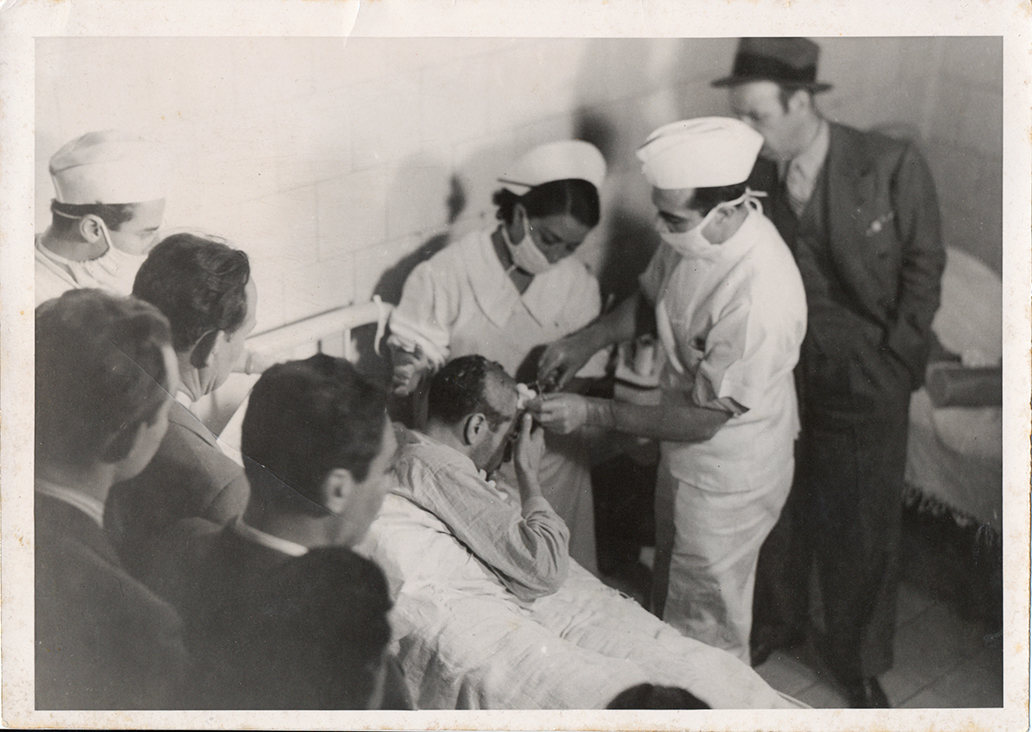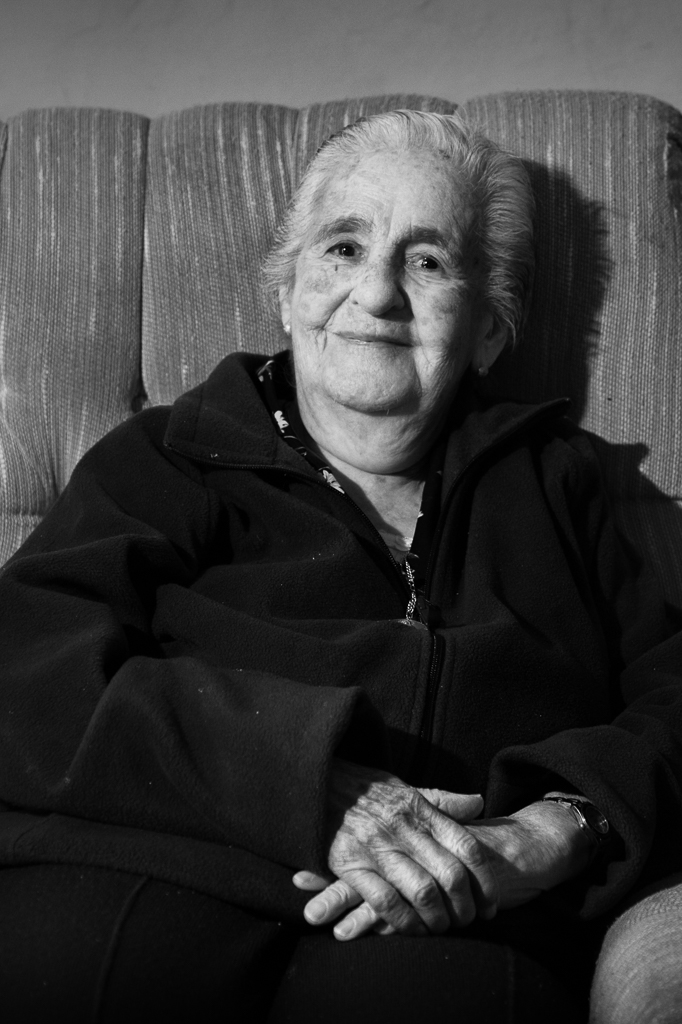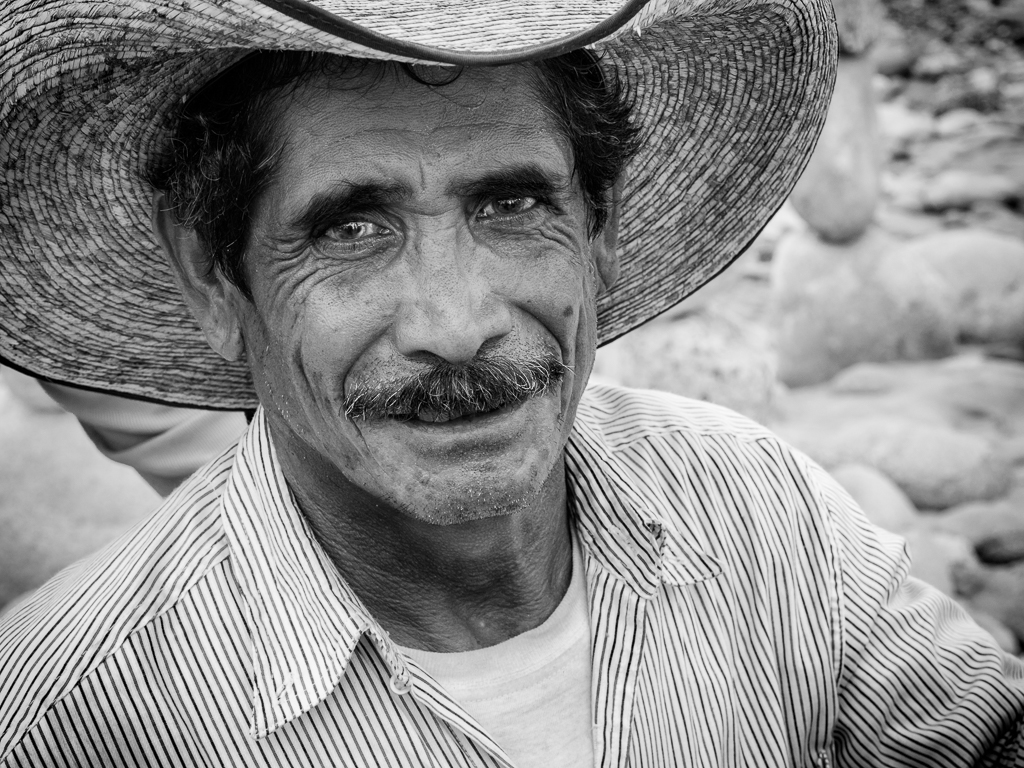The Magician, The Doctor, and The Gnome
An account of Trotsky's assassination you have never read before.
(I)
“Commander Téllez! Phone call for you!” screams the clerk with a smirk. Everyone on the floor of Novedades - Mexico City’s most prominent newspaper - continue their lives unaffected by the interruption. Eduardo ‘El Güero’ Téllez Vargas, on the other hand, is furious. It is past five o’clock on August 20th, 1940, and he is on his way out, ready to be less of a journalist and more of a dominoes player.
“Who the fuck is this?” inquires as he picks up the handset. It is ‘The Monk,’ a dispatcher for the Green Cross - we will never know his real name. “Güero, is Trotsky the guy doing that revolution thing in Russia?” asks The Monk. “Yeah, I guess you could say so." says Téllez. “And ain’t it true he now lives in Coyoacán?” continues. “Yes. What the heck is going on?” Téllez asks impatiently.
“Uhm, there was a big shootout; many injured and dead and everything! I just sent a bunch of ambulances. Grab your things and go!” Téllez almost smiles when he realizes his left hand has already wandered off to fetch Genaro Olivares, photographer, who is hastily stuffing a bag with rolls of film.
(II)
One morning, fifteen years before that call, my grandfather set sail to France. During post-war Mexico everything was gloriously French. We had a Palais of Beaux-Arts, butter instead of cempasúchil, and lycées everywhere. It was not unusual that Agustín Guízar would study medicine at the Sorbonne.
Agustín knew little French, but had a brilliant mind. He spent those first years frequenting parks, learning by listening to the kids and looking for older interlocutors as time went by. Soon he would speak with the fluidity of someone his actual age: 25. By 1929 a different Agustín would witness the funeral procession of Ferdinand Foch at Champs-Élysées, exchange some casual words with random strangers, and return to his studies.
This was France in-between wars. Artists, musicians, and writers from all over flocked to Paris. We’ll never know if he met Fitzgerald, Stendhal, or Balzac. But we know that he spoke at length with Jacques Mornard, a strong socialist voice at the Sorbonne. Jacques and his girlfriend Sylvia, an intellectual from Brooklyn with a direct line of communication to Leon Trotsky, introduced my grandfather to their ardent theory of a shared world. The trio spent many evenings at that old café by rue Laplace. My grandfather never recalled hearing anybody more ready to jump into the fire for the benefit of mankind. That fire - he shared many years later - seemed to be the only way for Jacques and Sylvia to change the world.
(III)
In 1937 Frida Kahlo and her husband, Diego Rivera, applied their political might to create a haven for Leon Trotsky in Mexico. El Güero Téllez met Trotsky for the first time in April of 1939 at a press conference about a certain agreement between Hitler and Stalin. Téllez would visit with Trotsky a second time in May. A group led by the muralist David Alfaro Siqueiros launched an attack so fierce that Trotsky’s survival seemed highly suspicious. Colonel Sánchez Salazar, chief of the Secret Service at the time, asked Téllez to interrogate Trotsky and excavate the subterranean truth.
That evening Pablo Neruda was quietly smuggling Siqueiros out of the country while Téllez sat on a rocking chair in Trotsky’s home, asking the questions only a journalist posing as an inspector would ask. Did Trotsky stage an assassination attempt? Trotsky didn’t. Did he think such an event was likely? He did. Trotsky continued to respond with patience and openness to the rest of Téllez’s questions. Then, as he was leaving, Trotsky added with the widest of smiles: “You, Mr. Téllez Vargas, were trying to fool me, but I assure you it wasn’t so. You are a journalist and not one of Colonel Sálazar’s men. I remember you perfectly well! You already stepped foot in my house that night when I spoke about Hitler and Stalin.”
(IV)
“I’m going back,” said my grandfather. “War is coming, and Mexico is readying a ship for as many nationals as possible. How about you?”
“Leaving as well, " said Mornard, “but Sylvia and I are going to New York. What about your studies? You are so close to finishing.”
“I arranged to continue in Mexico City. One little push, and next time we meet, you will call me a Doctor.”
“I look forward to that day. Be well.”
Agustín Guízar boarded that ship the next morning. It was October 1939.
(V)
Téllez and Olivares are driving at breakneck speed to the house on Viena St. They arrive and see several Cruz Verde (Green Cross) ambulances outside. Two of them - one with the number 8 - are just heading back to the hospital. Téllez and Olivares get out of the car and walk towards the house. The soil has the bittersweet aroma of fresh rain. At the doorway a guard, tall like a mountain, won’t let them in.
“I’m from the Public Prosecution office!” yells Téllez with the determination of a hawk. The mountain moves.
Trotsky’s secretary brings Téllez up to speed. One Frank Jacson, Canadian, attacked Leon Trotsky with a pick axe, and here it is for the gentleman to examine. A chunk of encephalic mass still clings stubbornly to the pick’s edge.
“Olivares!” orders Téllez with severity, “Make sure to photograph all the evidence.” Olivares is photographing like crazy. “Tell me,” he asks the secretary, “how did this Frank Jacson manage access the victim?”
“His girlfriend, Sylvia Agelofff knew Trotsky well,” he responds. “It was not the first time that the couple visited. But today, Frank came alone. He wanted to get Trotsky’s advice on a piece he was writing.”
“And Sylvia?”
“I don’t know, sir, but I know the hotel where they are staying. I already gave the address to the police. Didn’t they–?” Tellez interrupts quickly, “Those two ambulances…” pointing outside. “One carries Trotsky - still alive, heavens! - and the other takes Frank.” says the secretary.
“I presume Trotsky’s bodyguards tried to kill Frank.” ventures Téllez. “Yes, sir. Trotsky told them to stop. He wanted to make sure Frank could be questioned.”
Téllez knows exactly how much time they have before the real public prosecutor arrives. Not wanting to be around for that, he takes Olivares back to the car and heads over to the Cruz Verde hospital, on the corner of Victoria St. and Revillagigedo.
But he is too late. The police wasted no time and more than a dozen officers protect the entrance. Without missing a heartbeat, Téllez parks the car near a public phone and dials the number of Rubén Leñero, chief of medical services - and friend. Rubén is amused by Téllez’s request to be let in.
“Look, Güero,” whispers Rubén hastily. “you’re asking for the impossible. But you and I have been friends for a long while, and I have a soft spot for you. So here’s the deal: I will see that you can move freely, if you manage to come inside.”
Eduardo Téllez Vargas hangs up, a smile slowly forming on his face. This world has yet to give him a door he cannot open.
(VI)
What do we know about fate but that it deals humans the strangest of cards?
Twenty minutes before Téllez arrived at the crime scene, Dr. Agustín Guízar stepped down from one of the two ambulances and rushed to the house on Viena St. What he found inside nearly gave him a heart attack. Trotsky, bleeding on the floor, and surrounded by bodyguards was none other than his old friend Jacques Mornard, with minor wounds. For a brief moment, Agustín wondered if the fabric of reality was still holding up. The tall, muscular men appeared partially stunned by something Trotsky had just said, but Agustín could see them coming out of the spell and decided to move now and think later.
“An ambulance for each!” he yelled to the paramedics, “quick!”
Making sure Trotsky’s car went first, Agustín jumped into the second ambulance. He looked at Jacques (a.k.a Frank Jacson) in the eyes for a full five minutes as the car sped through the streets of Coyoacán; perhaps this was a fragment of some nightmare only he could dispel. Had this whole day been a dream? Jacques looked back in silence. The whole world seemed at a standstill while both men contemplated a thousand stories in their minds, a thousand interpolations, desperately looking for the one to fix this reality and set the universe back in motion.
Agustín resolved to speak. But Jacques was quicker.
“Doctor,” he said, pausing for a breath before continuing. “Here is a letter that explains my actions. Please, give it to the police.”
Agustín took it, saw that it was written in French, and put it away hastily.
“Qu’est ce que tu as fait!” asked my grandfather with the frailest thread of a voice. “Ce que j’ai fait, fait ça.” responded Jacques. Neither said a word for the rest of the trip - nor would they ever speak to one another again.
Less than thirty minutes later, at the corner of Pescaditos St. and Revillagigedo, Eduardo Téllez Vargas was having a heart attack.
(VII)
The Monk picked up the phone. There was a very distressed woman on the line requesting an ambulance not far from the hospital. The Monk smiled.
Five minutes later, a rather healthy looking Téllez steps down from the vehicle at the back of the emergency bay. He is happy to see that his old friend, Dr. Guízar, is already waiting with an extra set of medical clothes. Face mask and stethoscope included.
The place swarms with cops. José Manuel Núñez, commander in chief, would be very displeased if Trotsky died of anything other than natural causes at this point. Téllez and Agustín head up to the operating room where Drs. Eduardo Mass, Rubén Leñero, Rafael Ramos, and Gustavo Baz (later the Dean of the Universidad Nacional Autónoma de México) desperately try to save the life of the Russian revolutionary.
A voice stops them on the spot.
“You! You are doctors, right?” The inquiry comes from commander Núñez himself. “We are.” responds Téllez through his face mask. “So you speak French, right?…”
“Of course!”
“In that case, I order you to translate this letter; it belongs to Trotsky’s aggressor. But be warned of making any other copies!” Núñez stresses the point by repeatedly impacting his index finger on Téllez’s sternum.
Téllez writes down what Agustín reads aloud. Frank Jacson, indeed Jacques Mornard. Belgian. Born in Persia. Disillusioned with Trotsky because he would not bless his marriage with Ageloff, and on top of things wanted to send him on a quest to kill Stalin.
“As true as a piece of paper may be.” whispers my grandfather, no longer sure of anything.
“Where is Mornard now?” asks Téllez after scrawling a second copy of the letter, for private referencing.
“We keep him upstairs, come.”
Rebecca Solnit speaks about the anguish of the butterfly, whose body must disintegrate and reform to move forward. I believe that Sylvia Ageloff went through a similar metamorphosis after arriving at the hospital. A sea of tears and hatred, she would have killed Jacques on the spot was it not for the nurses who got in the way. Possessed by absolute distress, Sylvia’s trembling fingernails began to tear off her own clothes. To shed a life that included Jaques, she had to reshape her skin, her very existence, into one where he wasn’t.
Sylvia still doesn’t know that Jacques has been living many lives for quite some time, his current one the shadow of a shadow of a man called Ramón Mercader.
Téllez has seen enough for a day, and his nerves are aching for relief. He would later write how his smoking habit got him expelled from the hospital: Out in the courtyard, his mask removed, a voice from behind asks, or rather pleads “Güero, for god’s sake! You will get us both fired. Please leave at once!”
It is Jesús Galindo, then commander of the Secret Service (and friend). Jesús is not in the mood of waiting; Téllez finishes his cigar on the street.
By that time all the cards are laid on the table. Leon Trotsky dies the next day. Fate stands up, reaches for its hat, and leaves the room with a grin.

Photo: Family archive, but probably by Enrique Díaz. Tellez at the back. Mercader on the bed. My grandfather is the doctor.
Afterword
As a kid, my grandfather was always a mystery. Some benevolent force of nature promised me that the box of secrets would unfold as soon as I could speak to him in French. In the meantime, my grandfather was floor-to-ceiling bookshelves, a consulting room, a gramophone, a carpentry with hand-made tools, an apothecary with colourful substances in capricious flasks, the personification of what I would later understand as a free-thinking mind.
I would not grow fast enough to open the box. Alzheimer’s kept it sealed forever. One last story, though.
Many years later we were vacationing on the beach, my grandfather already in the clutches of Alzheimer’s. We were driving the car by the shore when Agustín must have thought he was being kidnapped.
“Sirs, there is no need to get violent, " he stated with surprising tranquillity. “I assure you, I will never speak of what I know.”
He never did.
The characters in this story are all real. A couple of facts are stretched a little, for added dramatism and so that their timelines would touch. Everything that is said about Eduardo ‘El Güero’ Téllez Vargas (our magician in the story) is true.
Sources
- Soto-Pérez-de-Celis, Enrique. MD. “The Death of Leon Trotsky”
- Téllez Vargas, Eduardo. Several publications. El Universal.
- Family photographs and other accounts.
Related Entries

The Devil
Chole, and her relationship with the Devil.
Read article

A mi abuela
Un par de palabras para recordar a mi abuela Teresa.
Read article

Magellan's Mask
A story to commemorate the day of the death.
Read article

Defying Stories
Telling your stories is an act of defiance.
Read article

The Stone Whisperer
Random words of wisdom found on the street.
Read article